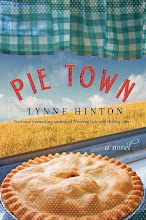Recently, on a television talent show a young magician auditioned for a spot in the finals. He was nineteen, performed a very bizarre magic trick, and was favored by the crowd and selected to continue in the competition. After his performance, one of the judges asked him a couple of questions about his history and interest in magic and finally asked him who he aspired to be. The young man grinned and replied without hesitation, “me.”
I like the answer. It puts me in mind of the Jewish proverb that reads, “The Hasidic rabbi Zusia said, ‘When I shall face the celestial tribune, I shall not be asked why I was not Abraham, Jacob, or Moses. I shall be asked why I was not Zusia.’”
It seems that many of us spend a life time trying to be somebody we’re not. Especially for those of us who are second or third in the birth order, the comparisons with older siblings who may be talented or bright or popular may have set us up early with thoughts that we need to be more like somebody else. We learn somehow that who we are is not good enough, not interesting enough, and the only way we can succeed in school, in relationships, in life is to try and emulate someone we know who is or was successful. It is, of course, not a terrible thing to follow examples of those who model important qualities like kindness and loyalty, patience and civility. We could do with a few more dignified and respectful leaders. But in the end, we are who we are. And instead of trying to be somebody else, instead of trying to be who we think everybody wants us to be, wouldn’t it be more satisfying to know ourselves well and try to be the best at who we are?
All my life I have thought I was an extrovert because that’s the role I took on as a child. I knew it wasn’t completely comfortable for me to be in large gatherings or in front of others but I continued to be the extrovert because I thought that’s what I should do, what was expected of me, what was most rewarded and honored. It was only when I became middle-aged and began to really know myself, my tendencies, my passions, my weaknesses, that I figured out I didn’t really like being out front. I don’t like large groups. I’m actually an introvert who has learned how to be an extrovert. And now that I know who I really am, I can still use my extroverted skills; I can lead when I need to lead, speak in public when I need to speak in public, but I no longer need to try and be that great extrovert when that’s not really who I am. Knowing this and honoring this has become a source of great relief in living my life.
It is not easy to face our true selves. Sometimes we wish to be different, wish to have other talents or gifts than the ones we have. Sometimes we hide behind pretenses for a long time. And yet, peace comes when we know and honor ourselves. Even as we seek to improve our human nature, seek to be kind or patient or loving even though that may not feel natural, let us not be unhappy with ourselves; let us celebrate our uniqueness of our creation. There is delight in being true to who we really are. That is, after all, where the real magic lies.
Saturday, July 17, 2010
Subscribe to:
Posts (Atom)
